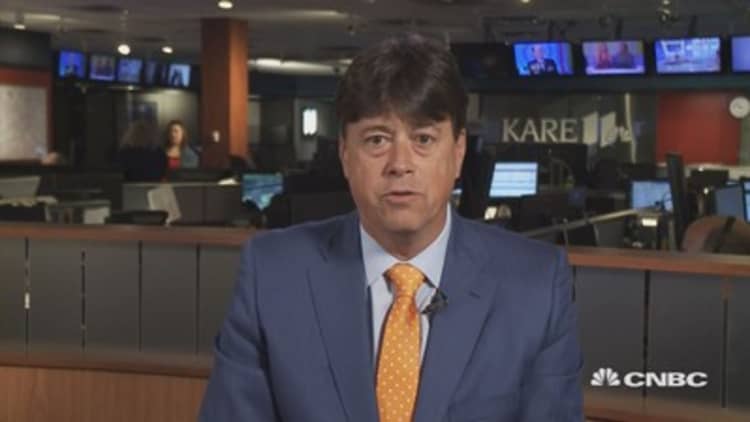
Minneapolis-based Medica tells CNBC it intends to offer Obamacare health plans in both Nebraska and Iowa in 2018, two states where it stands to be the only insurer on the exchanges after Aetna and other carriers announced plans to pull out of those markets.
"We didn't go into a community assuming we'd be there for a year and out. With Medica, and our social mission, we are making a long-term commitment to these communities," said John Naylor, the CEO of the not-for-profit insurer.
Medica offered Obamacare plans in seven states this year, including its home state of Minnesota. Aetna's decision to leave both Nebraska and Iowa for 2018 has put the regional carrier in the spotlight. Without Medica, 100,000 people in Nebraska and 50,000 people in Iowa could be left without an Obamacare carrier next year.
Medica said late Thursday that it will remain on the exchange in Nebraska. Further, the CEO confirmed to CNBC that the insurer plans to submit preliminary rates in all of the states where they offer plans now, including Iowa.
"Our intent is to be in Iowa. … We want to help the individuals, the farmers, the small business owners in Iowa. But until we have clarity on rules, we will not make a final call until we have that," said Naylor.
Naylor praised state regulators who are trying to help insurers stay on the exchanges. In Iowa insurance officials have asked the Trump administration for a waiver that would allow them to set up funding to make up potential losses from sicker, high-risk enrollees.
But insurers say the key thing they need is a commitment to funding more than $7 billion in cost-sharing reduction subsidies, which the industry is required to pay under the Affordable Care Act to reduce out-of-pocket costs for low-income enrollees.
So far, the Trump administration has continued to reimburse insurers for those payments, while a federal lawsuit about congressional authorization of those payments remains on hold.
"When the federal government set out certain rules, our expectations are that these rules are followed," said Naylor. "So as we look at pricing we need to know are those rules going to be enforced in 2018."
Insurers have to submit initial 2018 exchange rates requests by June 21, but if there's no clarity on CSR funding by next September, Naylor said his firm and others will have to reevaluate whether to actually follow through on their exchange plans for next year.


